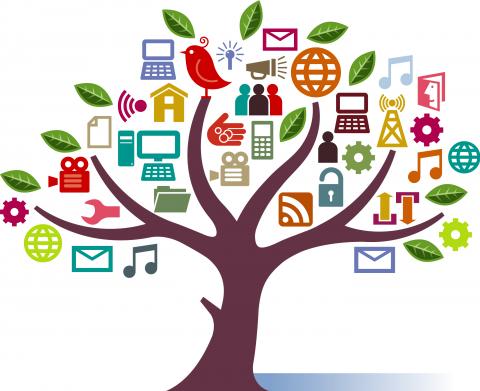Smarter searching with library databases
Thursday, 9 May, 2024 - 20:30
Learn how to access library databases, take advantage of the functionality they offer, and devise a proper search technique.

Digital literacy defines those capabilities which fit an individual for living, learning and working in a digital society.
JISC
In the context of OU study, digital literacy refers to the skills and capabilities of OU students using digital technologies to achieve personal, study and work-related goals.
Digital literacy includes the ability to find and use information (otherwise known as information literacy) but goes beyond this to encompass communication, collaboration and teamwork, social awareness in the digital environment, understanding of e-safety and creation of new information. Both digital and information literacy are underpinned by critical thinking and evaluation.
Library Services staff work with module teams to provide opportunities for students to develop their digital and information literacy skills across qualifications and modules. Students and staff can also make use of the support materials on the Library website to develop their skills.
We provide a clear vision for the integration of digital and information literacy into the curriculum, enabling students to become confident and independent learners and the OU’s learning and teaching strategy to be delivered.
For more information on integrating digital and information literacy into modules and qualifications, visit the Learning and Teaching Expertise and Digital Capabilities sections of the Library Services intranet site or talk to your Library contact.
The following materials are available to support the development of skills in finding, evaluating, using and managing information:
Thursday, 9 May, 2024 - 20:30
Learn how to access library databases, take advantage of the functionality they offer, and devise a proper search technique.
